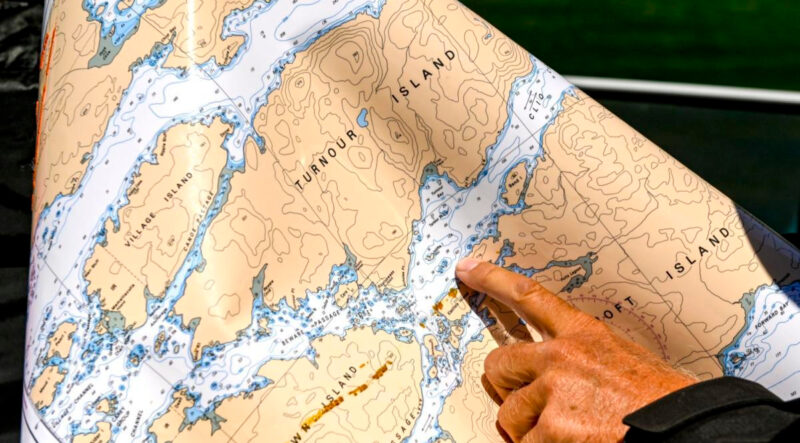First Nation wants more salmon farms in its traditional territory
Adding more salmon farms in our traditional territory is the clear way forward, says Chief John Smith of the Tlowitsis Nation
Fabian Dawson
SeaWestNews
A First Nation in British Columbia is calling for more salmon farms in its traditional territory that lies near an area where marine aquaculture operations are being phased out by the Trudeau Liberals.
“Adding more farms in our territory is the clear way forward,’ said Chief John Smith of the Tlowitsis First Nation, after submitting an application with Grieg Seafood BC Ltd. for an additional salmon farm in the Clio Channel.
The Clio Channel waterway lies near the Discovery Islands, where federal fisheries minister Bernadette Jordan has ordered the closure of 19 farm sites by June next year at the behest of anti-fish farming activists.
Grieg now operates 22 farms off Vancouver Island and the Sunshine Coast which are licensed to produce 23,400 tonnes of salmon for North American and Asian markets.
“We have built a solid relationship with Grieg Seafood over more than ten years of many meetings, visiting their farms and travelling to Ottawa, Vancouver and Victoria to speak to regulators about our views of aquaculture,” said Chief Smith.
“Our Guardians are on the water monitoring the farm activities as well as our members employed by Grieg. We have taken a lot of time to learn about the industry and our partner before we decided to become involved more directly and for us, adding more farms in our territory is the clear way forward. Our net-wash service company will also benefit from additional work for our members at a new farm.”
The Tlowitsis Nation, comprising 450 registered members, also has a net-cleaning agreement for three salmon farms operated by Grieg Seafood BC in the Clio Channel.
“Like so many other changes to our operations during our 20 years’ operating in BC, integrating Indigenous businesses into our core operations is a transition that reflects the work we have started doing around reconciliation, and how we create even more opportunity than before, with our First Nations partners,” said Rocky Boschman, Managing Director of Grieg Seafood.
“Chief Smith is a strong advocate for his community and has a first-hand understanding of our salmon farming operations,” added Boschman.
“We appreciate his regular advice and input and are committed to meeting his expectations of a respected relationship.”
Twenty BC First Nations have partnership agreements for farming salmon in their territories resulting in 80% of all salmon farmed in the province falling under a beneficial partnership with a First Nation.
Farmed Atlantic salmon is BC’s top international food export at $562 million playing a key role in the local and sustainable food supply, while supporting about 6,500 full-time, year round jobs near rural and remote Vancouver Island, Central Coast, and Sunshine Coast communities.
Last December, bowing to the demands of the anti-marine aquaculture lobby, Fisheries Minister Bernadette Jordan ordered the phase out of salmon farms in the Discovery Islands.
Minister Jordan made the decision, despite her own scientists saying that the marine operations pose less than a minimal risk to wild fish migrating through the area.
She also ignored her deputy minister’s recommendation for a more coordinated approach to the salmon farms closures, which was primarily pushed for by anti-fish farm activists.
The fish farmers have applied for a judicial review of the minister’s decision which is to be heard in the fall.
In its entirety, Minister Jordan’s unexpected Discovery Islands’ decision will see BC losing almost $390 million in annual economic output with $87 million less in annual salaries and benefits, and 1,535 fewer jobs, mainly in coastal communities of BC, according to industry estimates.
The devastating economic fallout triggered by the closures of the salmon farms will also spread to Surrey – the Lower Mainland’s salmon farming hub – killing 344 jobs.
Prior to the Discovery Islands’ decision, BC’s salmon farmers announced they were planning to directly invest $1.4 billion in innovation, new technology and infrastructure, to boost Canada’s post pandemic recovery. The investments through 2050 would create almost 10,000 new jobs and add a cumulative $44 billion in new economic activity to propel Canada’s Blue Economy.
Last week, another First Nation in the area, the We Wai Kai, was granted $144, 200 to explore the possible environmental impacts and determine potential business benefits of sablefish aquaculture.
The Gwabalis Fisheries Society – a partnership of the Mamalilikulla, Da’naxda’xw, Quatsino and Tlatlasikwala First Nations on Vancouver Island, also received $107,167 to undertake an area-wide survey to identify, assess, and report on sustainable aquaculture operations in their member Nations’ respective traditional territories.
The funding was part of $7.9 million in grants announced under the British Columbia Salmon Restoration and Innovation Fund (BCSRIF).
(Image shows a Tlowitsis First Nation member pointing to the nation’s traditional territory on a map – courtesy Tlowitsis First Nation)

